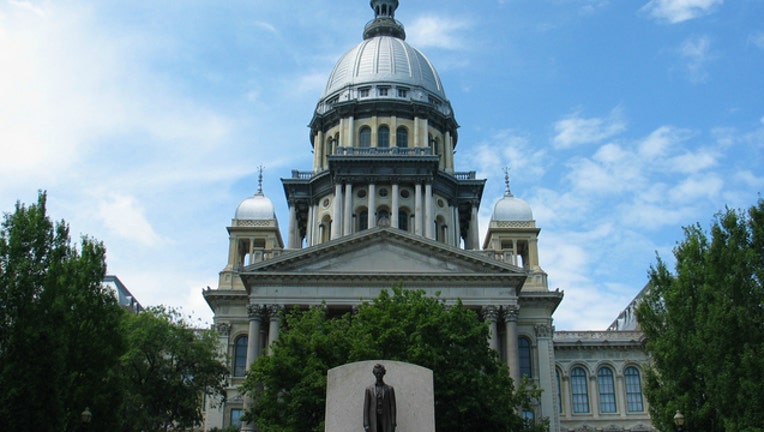Illinois Senate looks to address school funding plan

jshyun / Flickr
SPRINGFIELD, Ill. (AP) - Just days before the school bell's ring, the Democratic-controlled Illinois Legislature is grappling with a Republican governor over how to fix the biggest gap in the U.S. between a state's richest schools and its poorest.
School funding is in limbo after Gov. Bruce Rauner used his veto powers this month to rewrite a funding plan and, among other changes, remove hundreds of millions of dollars for Chicago Public Schools he said would be redistributed to other districts. Democrats, however, say Rauner's changes would result in hundreds of districts statewide receiving less money than they would have under the original bill. The Senate is set to gavel in on Sunday to address Rauner's veto.
Sen. Andy Manar, a Bunker Hill Democrat who sponsored the revamped funding formula, told a small rally Thursday outside a school in a low-income Springfield neighborhood that children across the state are eagerly gathering school supplies in anticipation of a return to the classroom.
"What they don't know is the injustice that's stacked against them the day they walk into kindergarten," Manar said.
Because of decades of state underfunding, Illinois schools are heavily reliant on local property taxes - overall among the highest nationally - meaning those in affluent, largely suburban, areas do well, while inner-city and small, rural districts with less taxable property trail.
The Legislature needs a three-fifths vote in both the Senate and the House to either override Rauner's changes or approve them to be able to send money to schools this year. Most schools have said they have reserves or other cash sources enough to open as scheduled, but few say they'd make it a whole school year without draconian cuts.
Amber Alexander, a Springfield mother of two school-aged children who attended Manar's rally, said kids need to be in school.
"This seems to be politics, and the people affected are the low-income and the children," Alexander said.
Manar predicted Sunday's session would produce a vote to override Rauner, but he said attempts at compromise with the first-term governor also continue. Rauner made substantial changes to the plan, which he has complained is a "bailout" for mismanaged Chicago schools.
Democratic state Sen. Scott Bennett, who represents central Illinois, said with Rauner's changes "every one of my schools is in danger of being hurt."
The Illinois State Board of Education, which is tasked with analyzing Rauner's changes and releasing numbers on how much money each district would receive, had not completed its review as of Friday.
A veto override would be a heavy lift. The legislation was approved with 35 Senate votes, one fewer than needed to overturn the governor. It got 60 votes in the House, 11 short of the three-fifths majority necessary to reverse a veto.
The House has 67 Democrats, so an override would need GOP assistance. House Republicans were excoriated in July when a handful rebuffed Rauner to support an income tax increase that ended a two-year budget stalemate. The House returns Wednesday.
The budget plan included a provision that requires money be distributed to schools only through an "evidence-based" model that funnels money to districts with greater needs - more poverty and fewer English speakers, for example. That's the model drawn up in the vetoed legislation, so without an evidence-based program in law, no state money can go out. The first disbursement was scheduled for Thursday but wasn't made.
Manar and other Democrats working to upgrade the 20-year-old formula insisted that no school district receive less under the new plan than it did this past school year. The formula would then feed money to schools based on what each district needs to provide an "adequate" education.
To advocates, the "hold harmless" provision means that Chicago can keep a grant it received for decades that represented what other districts were reimbursed for special education, transportation and more. Rauner has called that money - along with a requirement that the state pay the employer portion of Chicago teacher pensions, as it does for every other district - a "bailout."
Rauner also changed the legislation so that the "hold harmless" provision for other districts lasts for only three years. "By freezing all districts' base funding at an arbitrary moment in time, it limits the state's ability to reflect fluctuations in enrollment and better target available money to students in need," Rauner, whose office did not respond to a request for comment, wrote in his veto message.
___
The bill is SB1 .
___
Contact Political Writer John O'Connor at https://twitter.com/apoconnor. His work can be found at https://apnews.com/search/john%20o'connor .
___
Sign up for the AP's weekly newsletter showcasing our best reporting from the Midwest and Texas: http://apne.ws/2u1RMfv .
___
This story has been corrected to reflect that the Legislature needs a three-fifths vote in both the Senate and House to override, instead of a three-fourths vote.

